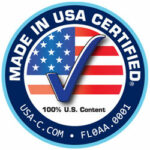
The following article appeared at Drovers Cattle Network here.
A World Trade Organization panel has issued a preliminary ruling on the case that Canada and Mexico filed against the U.S. country-of-origin-labeling law, charging that the mandatory rule violates WTO trade standards.
Specifically, the WTO ruling upholds that requirements tied to U.S. mandatory COOL violate provisions of WTO’s agreement on Technical Barriers to Trade or TBT. The WTO panel also ruled that the mandatory COOL requirements to not meet the United States’ stated objective that the labeling law informs and helps U.S. consumers make purchasing decisions regarding the origin of meat, produce and other products covered by the labeling law.
COOL started out as a voluntary labeling program in the Farm Security and Rural Investment Act of 2002—also known as the 2002 Farm Bill. It had specified that COOL would include pork, beef, lamb, fish, perishable agricultural products and peanuts, and that it would become a mandatory requirement by Sept. 30, 2004.
However, opposition mounted by numerous agricultural groups, including the National Cattlemen’s Beef Association and the National Pork Producers Council, as well as from packers, processors and retailers. COOL opponents’ argued that the program costs would far outweigh the benefits, which were not well determined, and that the marketplace and consumers should drive the need for such programs. Also, the consensus was that the effort driving COOL smacked of protectionism.
The mandatory version of COOL went into effect on March 19, 2009. Six months later, Canada filed a complaint with WTO, and Mexico quickly followed suit. The two countries’ trade officials argued that U.S. mandatory COOL amounted to an illegal, non-tariff trade barrier, and treated U.S. products more favorably than those from Canada and Mexico.
The WTO’s preliminary ruling was actually issued May 20, and there will now be a 30-days comment period. WTO officials have indicated that a final, public ruling will likely come sometime in September. The U.S. government will have two months to decide whether to appeal the WTO’s decision. As NPPC officials point out, such WTO decisions are typically appealed.
Long term, if the WTO ruling stands, the United States will have to dissolve mandatory COOL or risk trade retaliations from Mexico and Canada, both of which are major U.S. trading partners.

D. Campbell, well said…
The pork industry defends horrendous cruelty to animals — factory farmers keep breeding pigs locked in two-foot-wide crates where the pigs can’t even turn around for nearly their entire lives. Eight states have passed laws against this type of animal abuse, yet groups like the National Pork Producers Council still support it.
More info at this link: http://www.humanesociety.org/news/press_releases/2010/12/smithfield_pigs_121510.html
[…] (1) Source: Original article that appeared in Drovers Cattle Network 5/27/11: http://info.usa-c.com/2011/06/02/wto-rules-against-u-s-cool-program/ […]
[…] (1) Source: Original article that appeared in Drovers Cattle Network 5/27/11: http://info.usa-c.com/2011/06/02/wto-rules-against-u-s-cool-program/ […]
You know where the WTO can go! Getting into NAFTA in the first place was the beginning of the end of American superiority in quality merchandise and the end of jobs for Americans. Now the rest of the world is wealthy and America is poor. Good plan Congress! What else can you do? America is a sovereign country and we don’t need the WTO to survive. BEFORE OUR SO-CALLED “PROGRESSIVES” OTHERWISE KNOWN AS DEMOCRATS DECIDED WE SHOULD BECOME PART OF A GLOBAL ECONOMY AND SOCIETY, WE WERE THE MOST PROSPEROUS COUNTRY IN THE WORLD. NOW CHINA IS I’M GUESSING ALONG WITH ALL THE MIDDLE EASTERN COUNTRIES SELLING US THEIR OIL WHICH WE HAVE PLENTY OF RIGHT HERE IN AMERICA. IT’S TIME AMERICANS TAKE A STAND AND STOP THIS INCREDIBLE STUPIDITY COMING OUT OF WASHINGTON. FIRE THEM ALL. FIND SOME REAL AMERICANS WHO LOVE AMERICA TO VOTE FOR IF YOU CAN! PRAY THAT THEY WILL RUN FOR SOMETHING!